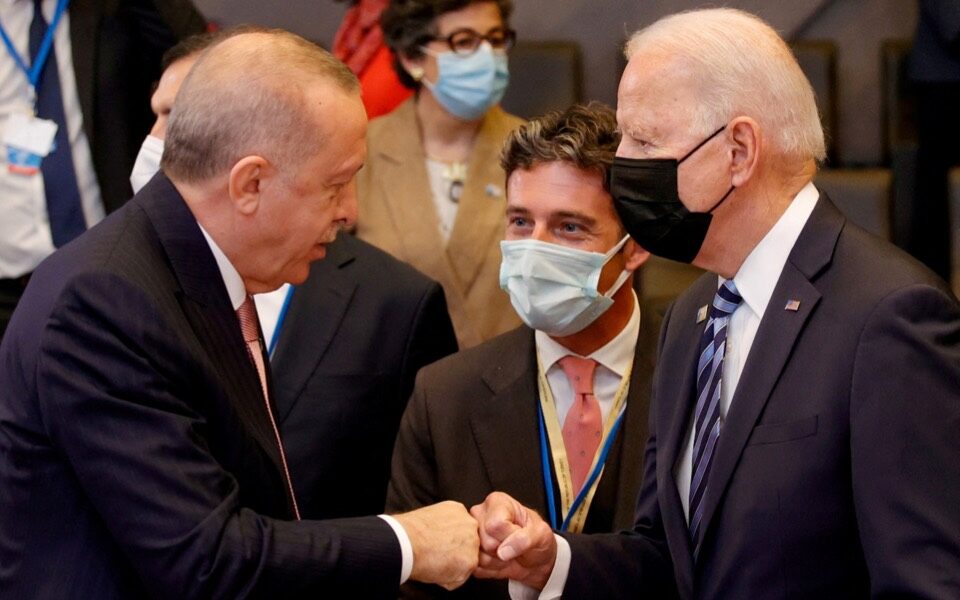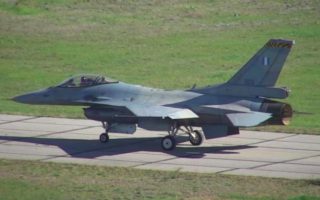A false reset

After years of deteriorating relations between the United States and Turkey, there is a concerted effort to promote a new narrative on US-Turkey relations in Washington, DC. This narrative centers primarily on how the war in Ukraine offers a chance to reset relations between Washington and Ankara and reverse Turkey’s recent tilt towards Russia.
The biggest shock to the US-Turkey relationship involved Ankara’s acquisition of Russian S-400s. The Erdogan regime obviously believed that Washington’s insistence on that issue was half-hearted and that Congress was bluffing. The ejection from the F-35 program and the imposition of CAATSA sanctions should have been a wake-up call.
Today, the “reset” narrative centers on Turkey’s request to purchase new and upgraded F-16s from the US. The State Department – which understandably wants everyone to forget that its long-standing practice of “privately” pressuring Ankara failed in the case of the S-400s (and in the case of human rights, religious freedom, respect for international law etc) – has tried to advance various rationales and talking points to distinguish the case of the F-16s from that of the F-35s.
There is an issue that is conspicuously missing from the any discussion of the US-Turkey “reset” narrative: Turkey’s escalation of aggressive behavior vis-a-vis Greece and Cyprus. The failure of the Biden administration to publicly link the “reset” to Turkey ending its destabilizing behavior in the Aegean and Eastern Mediterranean undermines US policy on several fronts.
On her most recent trip to Turkey, Under Secretary of State Victoria Nuland unveiled a new feature of the US-Turkey reset – the Strategic Mechanism. Having pocketed this incentive for good behavior, did Ankara respond with actions justifying this new diplomatic initiative? Not at all. The Erdogan regime could not even wait for Nuland to leave the region before increasing its aggressive overflights of Greek islands and violations of Greek airspace. In response, Nuland appeared on Greek state broadcaster ERT and told Lena Argiri that the airspace violations and overflights of Greek islands were “provocative” and declared “we [the US] don’t support them.”
In responding to members of the House of Representatives that had openly declared their opposition to F-16 sales to Turkey, the State Department contended that there are “compelling long-term NATO Alliance unity [interests] that are supported by appropriate US defense trade ties with Turkey.” Turkey undermines this case by using American-made F-16s against a NATO ally, Greece. With alarming regularity, Turkey challenges Greek sovereignty with American-made F-16s including 168 airspace violations and 42 illegal overflights over Greek islands in a single day on April 27 – less than two weeks after Undersecretary Nuland’s admonition.
Contrary to the State Department’s reasoning, Turkey undermines NATO Alliance unity interests and US national security interests on an almost daily basis by creating a flashpoint within NATO. Greece does not violate Turkish airspace, but it is forced to scramble its own jets – and engage Turkish jets – in defense of its airspace and territory. Former US ambassador to Greece Geoffrey Pyatt expressed his fear of a “horrible incident” between Greece and Turkey in the Aegean, where “lethal, complicated military systems” are facing off. Since then, Turkey has not only increased its airspace violations and overflights but has taken steps – including via formal diplomatic correspondence at the United Nations – to challenge Greece’s sovereignty over inhabited Greek islands.
Ankara tries to confuse the issue by insisting that it only flies out over international waters, pointing out that Greek airspace extends to 10 miles while Greek territorial waters extend only to 6 miles. This is disingenuity peppered with lies. To begin with, Turkey’s increased aggressiveness features armed overflights over inhabited Greek islands. Moreover, Turkey fails to mention that Greece has refrained from exercising its rights to extend its territorial waters under the UN Convention on the Law of the Sea because Turkey maintains a casus belli if Greece does so – effectively, a pre-declaration of war.
By any definition, Turkey is behaving as a belligerent in the Aegean. That these constant overflights and airspace violations are perpetrated by a state that shot down a Russian jet due to a 17-second incursion into Turkish airspace is especially ironic.
The threat to civilians has also been neglected in discussions over this belligerence. Turkey’s airspace violations have repeatedly put civilian air aviation at risk, especially in the summer when the area is saturated with commercial flights. Turkey ignores all Greek air traffic authorities that try to maintain the safety of civilian jets while trying to guess the flight plan of disobedient, unresponsive Turkish jets that often violate even the aviation safety zones of Greek islands.
Minimizing this belligerence and hoping that the problem will solve itself cannot be the US approach here. Continuing to cite the 10-mile airspace/6-mile territorial waters discrepancy is effectively daring Greece to call Turkey’s bluff on the casus belli and draw attention to the fact that a NATO member is using the threat of force to inhibit international law. The US cannot simply be worried about Turkey buying arms from Russia; it should give equal emphasis to the fact that Turkey acts like Russia – in terms of autocracy, human rights, respect for international law, and especially with regard to military belligerence aimed at Western allies and partners.
Turkey has not cured the failings that led to its ejection from the F-35 program and imposition of CAATSA sanctions. If anything, it’s behavior has gotten worse. Ankara is recklessly risking a war within NATO. To grant Turkey new and upgraded F-16s would be equally reckless. Any American arms sales to Ankara must at a minimum be restricted to prevent their use in a way that risks conflict with Greece, perhaps with legislation that requires a certification that American-made weapons are not used by Turkey in Greek airspace or over Greek territory. If the State Department does not have the wisdom and fortitude to publicly link the sale of F-16s to Turkey ending its revisionism and provocative behavior towards Greece, President Biden should do so in his meeting with Prime Minister Mitsotakis on May 16. The US must demonstrate that its insistence on Alliance unity is not an a la carte or transactional proposition – Turkey must behave within NATO as well.
Endy Zemenides is executive director of the Hellenic American Leadership Council.





